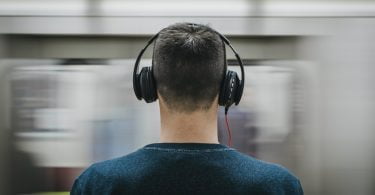Radio 1 is in a unique scenario.
Radio 1 is in a unique scenario. As work continues toward a younger audience, at the request of the BBC Trust, new media, particularly social media, has been at the helm of what people have come to expect from the BBC’ s pop music station.
In February, the BBC appointed two people to look after the social media challenges for Radio 1 and its sister station, 1Xtra. Charlotte Greenman took over for Radio 1. In a statement announcing those appointments, the BBC said the aim was to allow for a consistent tone of voice in social media output and allow for an increase in interaction with listeners.
“The regularity of social media ‘messages’ will become more consistent and there will also be emphasis on high-value moments and unique content,” the statement read. “It is also hoped that we can encourage more of our listeners to send us their user generated content that can be shared with our wider audience.”
New platforms, new ideas
In that statement, Ben Cooper, Radio 1’s controller, said this was part of the evolution of Radio 1 and 1Xtra as multiplatform brands.
“Our DJs represent us on air, now our social media producers will represent us online,” Cooper said. “Radio 1 and 1Xtra are multiplatform brands and that’s why our audience can now listen, watch and share our content.”
Radio 1’s increased video presence on Facebook and Twitter, as well as its YouTube channel (which recently surpassed one million subscribers, the first radio station to achieve that), has also allowed for the catering of audiences who wanted to see video with that audio, from celebrity interviews to live performances to particular segments of a DJ’s programme.
For the part of Radio 1’s near 50 year history, this signalled a change in what not only the audience it has catered to wanted to see from their favourite station, but also perhaps a change for radio as a whole.
A Radio 1 spokesperson did not respond to a request for an interview with Greenman prior to the submission of this piece to Kettle editors.
A united brand
Yet, does this signal a change in Radio 1’s direction? Is the emphasis put more on visual rather than traditional listening? Millie Riley, a broadcast assistant with the radio production company We Are Grape working on Radio 1 shows, who has spoken on the role of radio and visual content with younger audiences, says not necessarily.
“I think the core of its brand and meaning within UK meaning isn’t changing at all,” Riley said. “What’s changing is the world around it. As a result, its direction will change, but not its identity as a young-minded station and content producer.”
Riley says however it is hoped that people realise Radio 1 has a branch of visual content production.
“It is still a radio station, centred around a love of new music; that’s the cornerstone of Radio 1’s brilliant position in the changing landscape of youth content consumption,” Riley said. “I worry that people watch lots of Radio 1 video content but don’t actually realise that so much of that great stuff is actually made by Radio 1. That’s the next challenge – awareness of the station’s expertise in that area and in general.”
Riley says that although there is a challenge, there is not a division of content. The audio and visual content is all part of the same brand, Riley says.
“Radio is the cornerstone of what they do, but embellished and enlightened by video and social content,” Riley said.
‘Radio, music and talent are the core’
And in the long term, as Radio 1 looks for a younger audience, Riley says alienation is not the long term goal.
“I think the current audience need catching up with,” Riley said. “They’re in the process of trying not to alienate a demographic who have already felt distant from Radio 1, not the other way around. The only people they might be alienating are the section of the audience who aren’t target, which isn’t a problem for Radio 1 and the BBC as a whole.”
Bearing this in mind, Riley says Radio 1 can maintain the influence it’s always had, but with some more work.
“[Radio 1’s direction is] a solid path (shown by their social media and YouTube growth), but they’ve got to improve their own online presence away from Facebook, Twitter etc and make their website a real content hub, ready for people to share their stories,” Riley said. “And they should be ready for the innovations that are about to become mainstream (as cliche as it might seem) – what could BBC Radio 1 do for smart watches and Virtual Reality technology?”
But at the end of the day, Riley says there is still a core, something that listeners will likely identify with.
“I believe that radio, music and interesting talent are the core of what Radio 1 is, despite the changes that surround it.”
What do you think? What is the future of Radio 1? Have your say in the comments section below.
Image: Steve Bowbrick / Flickr








